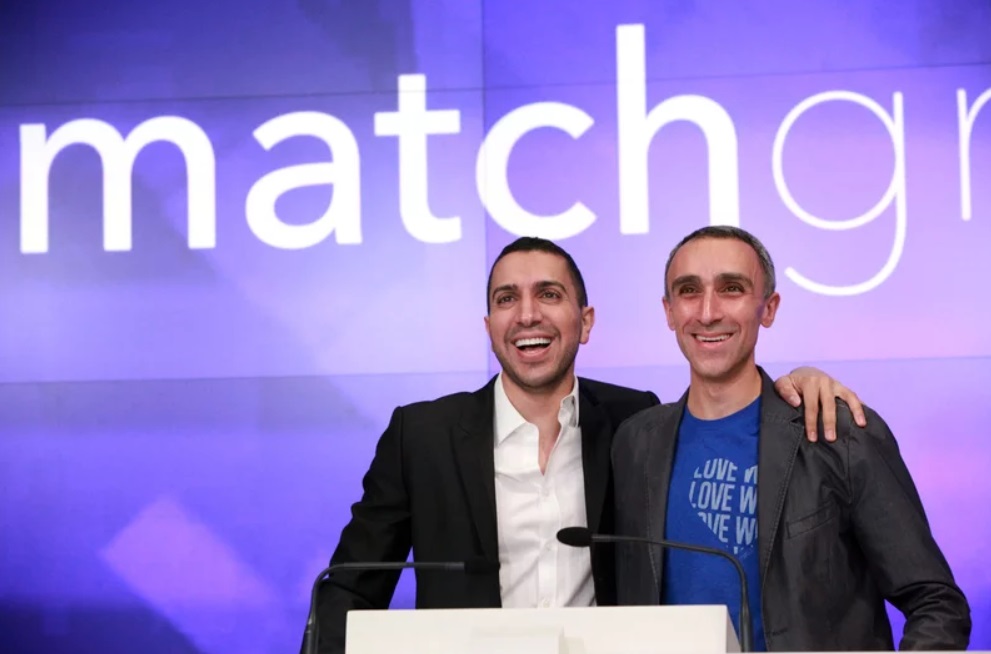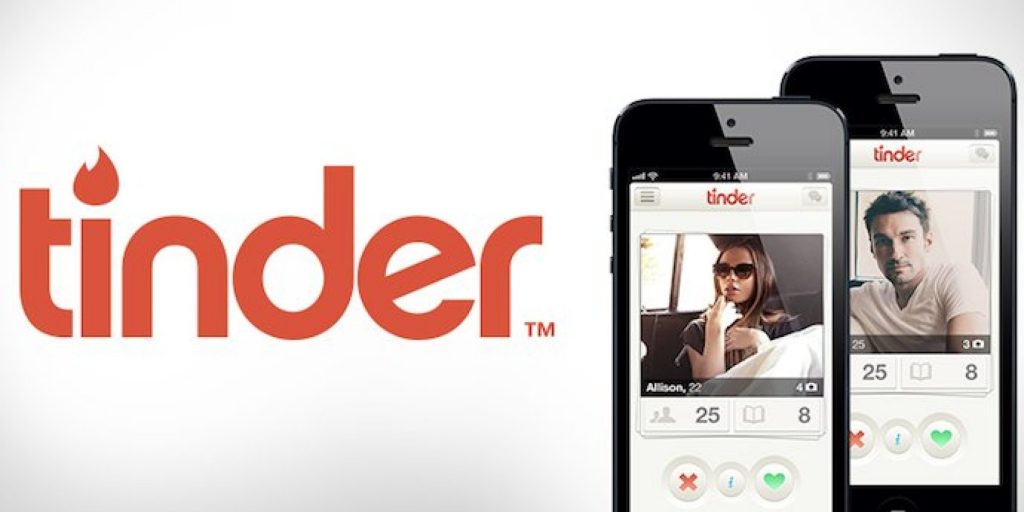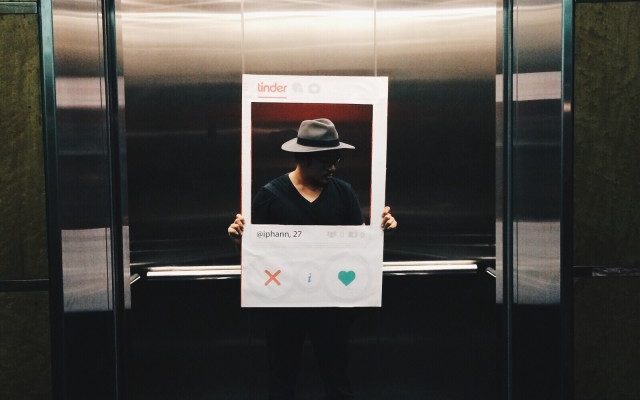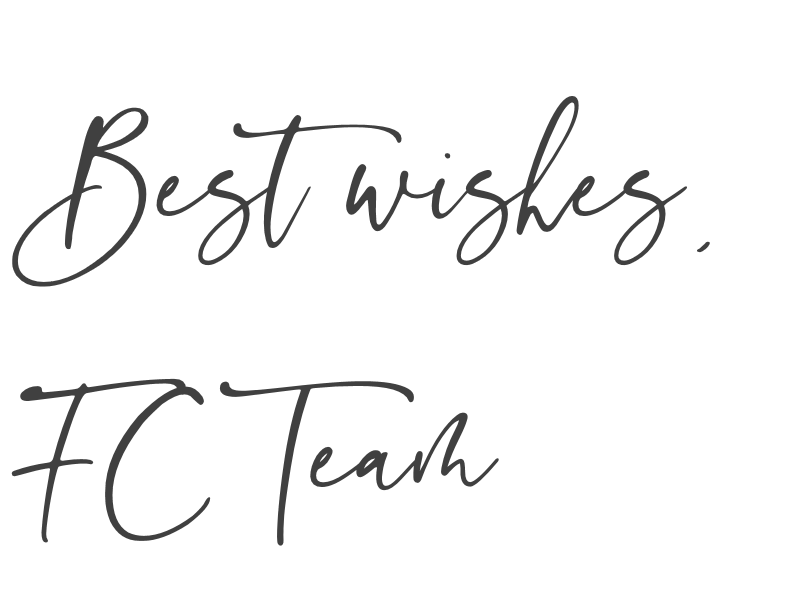Creating Tinder the world’s most popular dating app, Sean Rad changed the way people meet and how the Wall Street views Barry Diller. Unfortunately it was not enough for him to be able to retain his job.
Sean Rad, the co-founder and leader of Tinder (an app that has completely changed the way young people date and meet each other over the past two years) creates new things on a regular basis. Recently, while sitting in his stylish Philadelphia (Pennsylvania) hotel room in Palomar, the 28-year-old businessman was planning to do it again. After being ranked some place in between Peter Thiel, Monica Lewinsky, Oculus VR founder Palmer Luckey and Nobel Peace Prize winner Malala Yousafzai in the Under 30 Summit, Rad was about to present the first source of Tinder’s income. This will be a premium service which will be added to his free app. Top-level stuff.
But in the end it was not him to create a great novelty – the novelty found him. When checking his phone Rad saw a call from Sam Yagan a spokesman for AC / InterActiveCorp (IAC). The head of this company Bryan Diller owns the majority of of Tinder share thanks to one of the most complex deals in the technology start-up field. Therefore Yagan the head of the IAC virtual dating division is in fact Rad’s boss. Sam immediately went to the point and announced that Rad is no longer the manager of the company he created himself. The company that has been able to combine four of the most popular topics in the tech industry: Seeking of like-minded people, game nature, location services and the ability to send messages.

Confused Rad tried to comprehend what he had just heard. “I experienced all the breakdown stages at the same time: fear, damaged ego,” he says while remembering what happened. “I began to think about the company and my future.” A little later he proceeded to the Pennsylvania Conference Center where he posed in the green room with the supermodel Petra Nemcova for Instagram photos. Then he went on the stage with me to speak for 30 minutes in front of 1500 best young entrepreneurs how to create an online phenomenon.
Dressed in skinny jeans and a blue windbreaker jacket Rad revealed a number of surprising facts. The Tinder app which has experienced a 600% growth over the past 12 months has been downloaded 40 million times since 2012. All 30 million registered users together estimate 1.2 billion potential partners – that is 14 000 actions per second. And they don’t waste time. Each day Tinder generates nearly 14 millions of matches. Rad revealed the idea of a premium service as it was originally planned which immediately was announced to the world by thousands of Twitter posts. Immediately after the speech he gave an interview to CNBC. “Back then while being on stage it was easy to forget about everything that had just happened,” he remembers with a sigh.
After returning to the hotel he laid down on his bed and stared at the ceilings. His friend Justin Mateen, Tinder’s former marketing manager, was also in the hotel room with him. In many aspects he might be responsible for the unpleasant situation that happened to Rad. In July, the former Tinder general manager (as well as Mateen’s ex-girlfriend) Whitney Wolfe announced that she would initiate legal proceedings on the basis of sexual assault, by which attracting huge media attention and achieving the dismissal of the Marketing manager. Mateen officially filed a resignation in September. Although he is no longer in the sights of IAC , Mateen is still Rad’s advisor and Sean believes that his friend has been treated too harshly. They both still talk at least four times a day and their families dine together. When I arrived in Los Angeles (the home town of Tinder) to meet Rad he had just crashed his upgraded G-Class Mercedes worth 115 000 dollars so he had borrowed a car from Mateen. Mateen’s car was nearly the same by the way.
They considered Rad’s options. The IAC insisted that Red stays with the company, but rather opens his current position and focuses on product development instead. “The Board considered that the best solution was to attract a new chief executive. In their opinion, if the position was available it would attract some talented personality”, says Rad. “I did not agree.” What should he do – stay or go? For the next few hours Rad spent walking the streets of Philadelphia (in his opinion some 16 kilometres were walked) with his phone in his hands. He called Yagan and his boss, the head of IAC Match Group Greg Blatt. He called his advisers and lawyers. His girlfriend, father, his girlfriend’s father who happens to be Michael Dell, a billionaire. There was no consensus. Some suggested accepting the offer while others – to quit.
INVENT? NO! IMITATE! IMITATORS HAVE COPIED TINDER’S SIMPLICITY AND TAKEN ADVANTAGE OF IT FOR PRIVATE PURPOSES. COPYCAT PRODUCTS OFFER OPPORTUNITIES TO FIND DOGs, EXCLUSIVE SHOES OR COMPANY FOR A ROMANTIC EVENING.
BARKBUDDY FUNDING: $ 21.7 million INVESTORS: 500 Startups, Lerere Hippeau Ventures. Find and adopt a nearby puppy.
JSWIPE FUNDING: none. INVESTORS: none. Meet the people you already know
CALIBER FUNDING: unknown INVESTORS: BetaAngels. Hire your next programmer.
STYLECT FUNDING: 600,000 USD INVESTORS: Oxygen Accelerator. Get exclusive shoes.
3NDER FUNDING: unknown INVESTORS: Haatch. Three are better than two
In despair Rad cancelled a flight to Los Angeles and instead bought a train ticket to New York where the IAC headquarters designed by the famous architect Frank Gehry were located. “Everything went very well,” he says. “The company was growing faster than ever, we were about to launch a service that promised revenue. My relationship with Sam was great and the sexual assault trial had just come to an end.” Rad hoped to change the IAC stance by having a sit down and negotiate with Yagan and Blatt.

However he wasn’t able to achieve it and there were two reasons for it. The first was the control. This drama was based on everything Shakespeare might have wanted (struggle for power, betrayal, fortune and sex) but the roles were played by lawyers in corporate structure not bards. Does inexperienced entrepreneur like Mark Zuckerberg or Snapchat creator Evan Spiegel would be able to survive trough the rapid and often painful early stages of their company’s growth without safe defence? The second thing is money. Analysts who keep track of the IAC shares estimate that the current Tinder’s worth is approximately 1-1.5 billion dollars; however, even they assume that this figure is with a huge discount as opposed to amount that the app could get from venture capital investors. An analyst from a large bank revealed that Tinder’s value could exceed 5.5 billion dollars (IAC market value) considering the unpredictability of the private market.
SEAN RAD KNOWS WHAT ENTREPRENEURSHIP IS and what is the American dream. His parents, Iranian Jewish immigrants, fled from their homeland shortly before Ayatollah Khomeini came to power. They ran an electronics manufacturing and logistics company ESI International founded by Rad’s grandfather. The business was successful enough for Rad to grow up in the prestigious California area.
He began to study at the University of Southern California but dropped out in 2006 to fulfil his business aspirations. First there was an e-mail service- Orgoo which combined e-mail accounts, contacts and messages in one place. This plan fell apart but the next one was more successful – a marketing company called Adly which united popular brands with celebrities, and created adverts on Twitter. Soon after thanks to Rad, Snoop Dogg was tweeting about Toyota while Kim Kardashian was talking about the popular NBC comedy Community on Twitter. But this idea turned out to be much more labour intensive and harder to assess than he had originally planned. “I did not want to trade with celebrities and brands,” says Red. “I’m not the one to sell Madison Avenue.” After three years he sold his shares to a private equity firm earning few million dollars and was planning to launch something new.
Hatch Labs was a suitable place for this – a New York Incubator for mobile devs, created by a former IAC Manager Dinesh Moorjani, funded by IAC and Xtreme Labs. “I wanted a relaxed working environment and the opportunity to hire the best minds in the mobile app market,” says Rad who accepted a paid position and company shares himself and began working in Hatch’s office in Los Angeles in 2012, when he led the development of the Cardify application. An application designed for retail store loyalty card owners.
“There is no such Executive Director with whom I would not be able to work together. That would be a corporate suicide.”
Meanwhile he and Mateen began thinking of an app based on the like-dislike system. When Hatch organised a hackathon during Rad’s first week of work, he together with engineer Joe Munoz created a prototype and named it Matchbox. Their app won the competition and Moorjani appointed Cardify team to develop the new idea.

“I thought it was a small, cute application,” says Rad. A serial entrepreneur Andrew Frame, who tried purchasing Tinder from Hatch Labs for about 750 000 dollars spoke openly: “They thought this app would help them get laid.”- he said. Frame suggested a service shut down while Tinder had just few hundred of users, he offered IAC a small part of shares in order to separate it from Hatch and to relocate the app development to San Francisco for improvements.. Rad didn’t agree to this, Tinder’s popularity grew rapidly and this deal failed. “I regret that I didn’t join the guys and didn’t pull the wires from the servers,” adds Frame. Tinder has perfectly digitalised the way for people to easily meet by simply using just a smartphone.
One tap of a finger is enough to connect your Facebook profile to the application and in a matter of seconds you will be offered countless photos of prospective suitable partners nearby. No questionnaires – only faces. If you like it– swipe right if you do not – swipe left. If you have both have liked each other Tinder will offer you the opportunity to start a chat. Tinder’s parent company’s IAC purchase in Latvia The website ask.fm was created in 2010 by two Latvians Ilya and Mark Terebin instantly came to the world’s attention attracting more than 100 million registered users. The first and only investor of ask.fm was RubyLightTechnology through which Latvian “Mark Zukerberg” Vitaly Rubshtein continues to invest a part of the millions earned from social network businesses – appears successful. Ask.fm was not only one of the brightest trophies of the RubyLight Technology portfolio – this company was also ranked number four of the last year’s Internet leader list of Financecounter. Shortly after the rating publication ask.fm was bought for an undisclosed amount of money by Ask.com owned by IAC (one of the largest IT companies in the world covering 150 companies). One space has opened up in our ranking. I wonder who will take it?
“We have freed you from fear of being rejected,” says Rad while we both are having breakfast in Cecconi, a restaurant that is 3-minute driving distance from Tinder headquarters in West Hollywood; 40 people are working here. “When I address a stranger in a bar I get nervous from fear of being rejected while the other person feels pursued. We have eliminated these two problems. Basically Tinder is the accidental eye contact between two people.”
The like-dislike system created by co-founder Jonathan Badeen brings a sense of game to the application and every new match increases user’s self-esteem. Tinder gives you the opportunity to view a person’s profile similarly to Facebook and Instagram. But in case of Instagram interaction ends when you push the like button but with Tinder it just starts. This makes the user addicted. Sources say that Tinder has 18 million active users per month (half of all registered) and about nine million use the app daily. As Michael Dell once said – “Every time you see such statistics you realize something great and amazing is happening”. If you are wondering who is using this app I will reveal that Rad met Dell’s daughter Alexa on Tinder.
In the spring of 2012 Rad took over the leadership of the team and the product. Munoz created the Facebook link, Badeen developed the iOS link, Chris Gulchinsky created the interface and design, Adam Huie managed finances. Moorjani supervised the entire process. After three weeks and 50,000 dollars spent the product was ready. To avoid any confrontation with the IAC’s cash machine – the dating site Match.com, the new app was named Tinder.
In fact, the spark was lit by Justin Mateen. Rad met Mateen at the University of Southern California, where he already had a small business. His university formula turned out to be operational in the future. “I persuaded all of the most popular student club and fraternity members to sell tickets for events. If they sold ten tickets I gave them one free ticket, “says Mateen sitting at a dinner table in Los Angeles. He had just returned from the clothes–are–optional hippie event where he had gone to clear his mind (Mateen claims to have been fully dressed). “I realized that if we would attract socially influential people then everyone else would join too.” He sent a beta version to 600 of his most popular Los Angeles friends who quickly attracted a lot of new people to the app. It did not take a long time for Tinder to produce several tens of thousands of interactions. Rad remembers: “Friends soon began to write us such texts as: damn, this changes my life!”
When Mateen became Tinder’s Marketing Officer and co-founder he used Zukerberg’s technique and introduced the new app to elite schools – the elite party schools. Thanks to their friend’s younger brothers and sisters Tinder entered into campuses of South Carolina, Arizona and Texas. The rest soon followed. In the beginning of 2013 Tinder had 400 000 users. Tinder was introduced to the rest of the world by being delivered into the world’s most prestigious party of all – Sochi Winter Olympics Village. Dates arranged on Tinder quickly got into the headlines of the news. Soon Tinder reached billion matches. It attracted the attention of the IAC.
“We have freed you from fear of being rejected. Basically, Tinder is the accidental eye contact between two people.”
TINDER’S OWNERSHIP STRUCTURE RESEMBLES A MATRYOSHKA DOLL. Hatch Labs owned 100% of Tinder shares because Rad was their employee and IAC owns most of Hatch Labs shares. As the founder of Hatch, Dinesh Moorjani explained, as the company separated from Hatch he demanded shareholdings from the team. He also claims that the team while still working for Hatch was aware that at the end of the day Barry Diller and the IAC will be the majority shareholder.

In August 2012 Moorjani was preparing to launch several new companies under Hatch but IAC disagreed with the new rules that that would have given more ownership to business founders. At the beginning of 2013 Moorjani shut down Hatch. Although Rad did not comment but according to information provided by a close person, he had always believed that Hatch would separate from Tinder and give him control over the company. Instead IAC announced to Rad that Moorjani was out of the business, that Tinder belonged to them and that he was their employee. Yagan from IAC says: “We hired Sean because he is a great product specialist. While he was working with us he invented Tinder. We provided him with the resources to implement the idea. He created a product with tremendous added value and will also earn huge amount of money. “
Rad turned to well-known people in the technology world usch as the co-founder of the investment company SV Angel Ron Conway and actor-investor Ashton Kucher in hopes to force Diller into accepting new regulations. As a result they developed the following agreement: IAC will own 60% of shares, Rad will receive 10%, little less for Mateen and Badeen, and the rest – for others. Rad being the chief executive laid out Tinder’s day to day activities that included product, team, marketing, and brand management. But soon enough Rad, Mateen and Badeen realized that in fact they were not in charge of anything but Barry Diller.
The trial of sexual assault played a key role. Whitney Wolfe (24) from Utah knew Mateen’s youngest sister. She joined the Cardify sales team and later moved to Tinder where she became the vice president of marketing department and reported only in to Mateen. Both began to date but when the relationship fell apart the situation became unpleasant. Rad and his girlfriend Alexa Dell became friends with Wolfe (Rad often mentioned that he considered Whitney as one of his best friends). This divorce affected the entire Tinder business. “Working with a friend when creating a company is great because it helps overcoming difficult situations,” says Rad. “But in the end everything blended together. The boundaries should have been stricter.”
Wolfe sued Tinder and IAC for sexual assault. In the claim she accused Mateen of abuse and the refusal to declare her as a co-founder because she is a woman and Rand and Yagan – for ignorance. The claim was filed in the Los Angeles court and it consisted of Mateen’s messages to Wolfe which were full of sexism, racism and rudeness (even Diller was insulted in one text). Rad had to make a decision. The team, friends and Mateen’s family insisted he defends his friend and company’s co-founder, but IAC ordered everyone from Tinder toremain silent. “Justin could have defended himself and disclosed hideous evidence against Wolfe but it would be detrimental to the company. So he kept silent, suffered and protected the team,” says Rad.
Mateen indeed had behaved nasty. “I really believed that you would be a good mother and a wife,” he wrote in one of the materials available to court. “I was terribly mistaken.” However several interviews and documents prove that Wolfe wasn’t without blame too. She used the same language in her messages and e-mails as she accused Mateen of in the court. Without going into detail Rad revealed that, thanks to Wolfe’s close relationship with him, his girlfriend and Mateen they often swept this lady’s behaviour under the rug. Other Tinder employees would lose their position in case of this type of behaviour
In the end the whole event turned out to be one big charade as a reasonable conclusion wasn’t achieved by it. In September a settlement was agreed between Wolfe and Tinder. Noone pleaded guilty, Mateen did not, nor did anyone else from Tinder or IAC. A source claimed that Wolfe had hoped for a much greater gain from the court, but she obtained only a million dollars.
“Justin could have defended himself but he kept silent, suffered and protected the team.“
However the harm was already done. IAC did not want to see its new cash machine be stopped by amateur mistakes. Rad had the name of founder but he could not decide over the company’s destiny. It eventually led to the previously mentioned call a few weeks later. “If it wasn’t for the incident with Whitney, IAC would find it difficult to demote Sean because it would create a lot of questions,” says a source related to the company. “But the trial gave them such an opportunity.”
Rad has not left the company yet. His meeting in New York with the representatives of IAC reduced mutual tension. (Though Diller was not present there.Considering Tinder’s significance for his business having something happen without his consent would be unthinkable.) “Sean has shown great strength in creating the Tinder brand, users and product,” says Yagan. “We do not want to diminish his role.” Rad will remain part of the Tinder board and will continue to fulfil the duties of the Executive Director until a replacement for him is found. “We are looking for a leader similar to Eric Schmidt,” says Rad. “There is no Executive Director with whom I would not be able to work with. That would be a corporate suicide. ”
Of course searching for Eric Schmidt (Google) you may also find John Sculley (Apple). Only a few executive directors would agree to having all of their decisions being challenged by the company’s founder. But also Rad finally has allies. Last October, after more than six months of negotiations, he persuaded an influential venture capitalist from Benchmark Capital Matt Cohler to acquire Tinder shares and join the board. “We need particular knowledge and external reassurance to show the future employees and to the world that this is a great company” says Rad. “And also a fact that the liquidity structure is acceptable to a venture capital company.” The terms of the transaction are unknown but some sources claim that the contract is not in cash and that Benchmark will acquire shares in exchange for its own time. “The natural usability and involvement of Tinder is extremely rare and special,” says Choler.
The high income plan Tinder Plus which Rad mentioned at the 30 Under 30 meeting for the first time, will offer two new opportunities to all lucrative customers. The first will allow users to choose potential partners from any state in the United States or country in the world – no matter Barcelona or Boston, Rio de Janeiro or Rome. The second is a opportunity requested from the very beginning of Tinder – to undo previously disliked user profiles.
Rad has no shortage for grand plans. He hopes to transform Tinder from the dating application to social GPS. The addition Tinder Places will be like a transmitter which based on the location will help users (no matter at the bar, stadium, museum, or park) to meet new people (the next friend or training partner). The idea is as follows: you can tell a lot about a person by judging their work and food choices, favourite shopping and recreation places. “We have to include thousands of places in the world. Hence there are technical difficulties because there will be billions of transactions in the cloud. We are talking about huge business projects.”
It is hard to imagine that IAC will engage in such an ambitious and expensive project. At least for now while nobody else is involved with cheap, easy income sources such as the ability to subscribe to the service and advertisement. You should also take into account the information of all Tinder users that could potentially be sold. “We still have vast income opportunities,” says Yagan. “But before every decision about dating I will consider everything long and thoroughly.” The pressure to provide income is increasing. In the summer CEO of IAC Greg Blatt informed Wall Street analysts that next year Tinder could make 75 million dollars in profit before interest, taxes and depreciation. Bank of America expects Tinder to reach $ 150 million in 2015. In turn, Barclaysbelieves that by 2016 they will earn 200 million.
This raises the question – will Red even experience year 2016 in Tinder? The man who was debating leaving the company in Philadephia, now seems to be determined to stay in it and do everything that would fuel Tinder’s growth. Considering that he owns 10% of the product, whose value is already measured by a ten-digit number, he has good reasons to stay there. “Perhaps, I’m naive, so to speak, but the soul of a consumer oriented business lies in its product,” says Rad. “Company dies by expelling the management responsible for the product.”.



